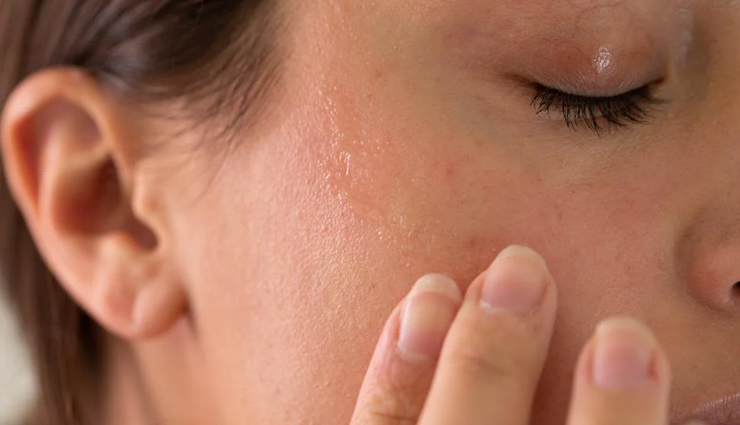5 Amazing Benefits Of Using Tea Tree Oil For Psoriasis
By: Priyanka Maheshwari Mon, 11 Mar 2024 11:45:01

Psoriasis is a chronic autoimmune condition characterized by the rapid buildup of skin cells, leading to the development of thick, red, scaly patches on the skin's surface. This condition affects approximately 2-3% of the world's population and can manifest at any age, although it often appears between the ages of 15 and 35. Psoriasis is not contagious, but it can have a significant impact on an individual's quality of life due to its physical discomfort, psychological effects, and potential association with other health conditions.
The exact cause of psoriasis is not fully understood, but it is believed to involve a combination of genetic, immune system, and environmental factors. In individuals with psoriasis, the immune system mistakenly attacks healthy skin cells, causing an accelerated production of new skin cells. Normally, skin cells go through a cycle of growth and shedding over the course of a month. However, in psoriasis, this process is greatly accelerated, with skin cells turning over every 3-4 days instead. This rapid cell turnover leads to the accumulation of thick patches of skin known as plaques.
Psoriasis can occur on any part of the body, but it most commonly affects the elbows, knees, scalp, and lower back. The severity of psoriasis can vary widely among individuals, ranging from mild, localized patches to severe, widespread involvement covering large areas of the body. In addition to its physical symptoms, psoriasis can also have a significant impact on emotional well-being, as it may cause embarrassment, self-consciousness, and social isolation.
While there is currently no cure for psoriasis, various treatment options are available to help manage symptoms and improve quality of life. These treatments may include topical medications, phototherapy (light therapy), oral or injected medications, and lifestyle modifications. The choice of treatment depends on the severity of the condition, its location on the body, and the individual's overall health. With proper management, many people with psoriasis are able to effectively control their symptoms and lead fulfilling lives.

# Anti-inflammatory properties
Tea tree oil possesses anti-inflammatory properties, which may help alleviate inflammation associated with psoriasis. Reducing inflammation can help ease symptoms such as itching, redness, and discomfort.
# Antimicrobial effects
Tea tree oil exhibits antimicrobial properties, including antibacterial and antifungal effects. This can be beneficial for individuals with psoriasis, as they are more susceptible to skin infections due to compromised skin barrier function. Keeping the skin clean and protected from infections can aid in managing psoriasis symptoms.

# Moisturizing properties
Tea tree oil can help moisturize the skin, which is particularly important for individuals with psoriasis. Psoriasis is associated with dry, flaky skin, and maintaining skin hydration can help improve the appearance and discomfort associated with the condition.

# Reduced itching and irritation
The anti-inflammatory and soothing properties of tea tree oil may help reduce itching and irritation associated with psoriasis lesions. By calming the skin, tea tree oil can provide relief from discomfort caused by psoriasis flare-ups.
# Promotes wound healing
Tea tree oil has been found to promote wound healing due to its antimicrobial and anti-inflammatory properties. While psoriasis lesions are not wounds in the traditional sense, they can benefit from faster healing and reduced inflammation, which tea tree oil may provide.





